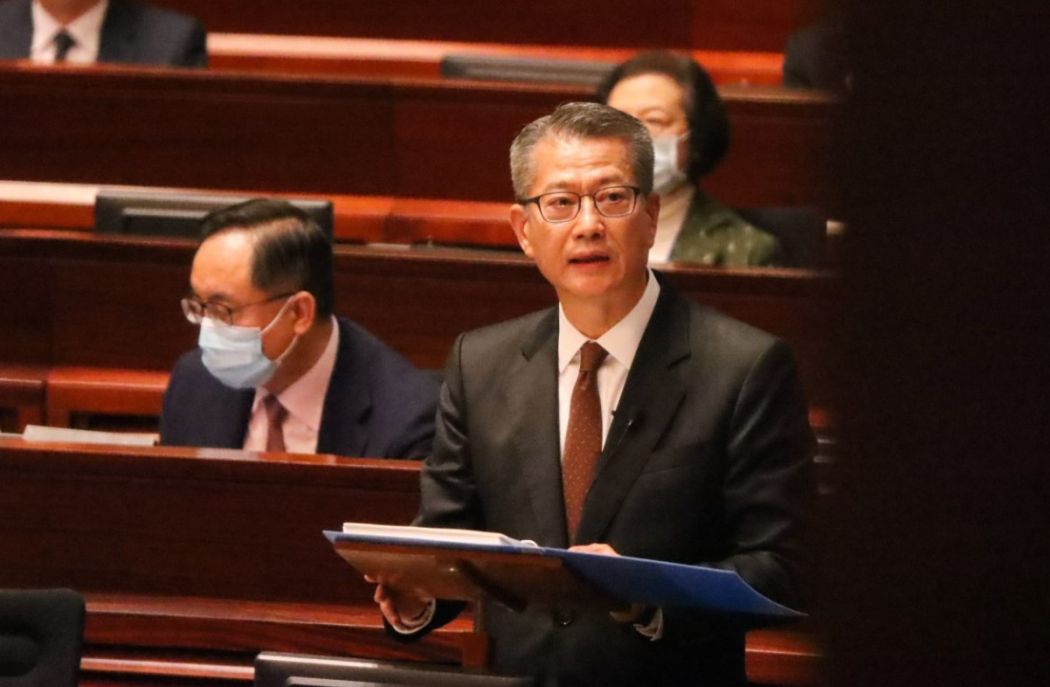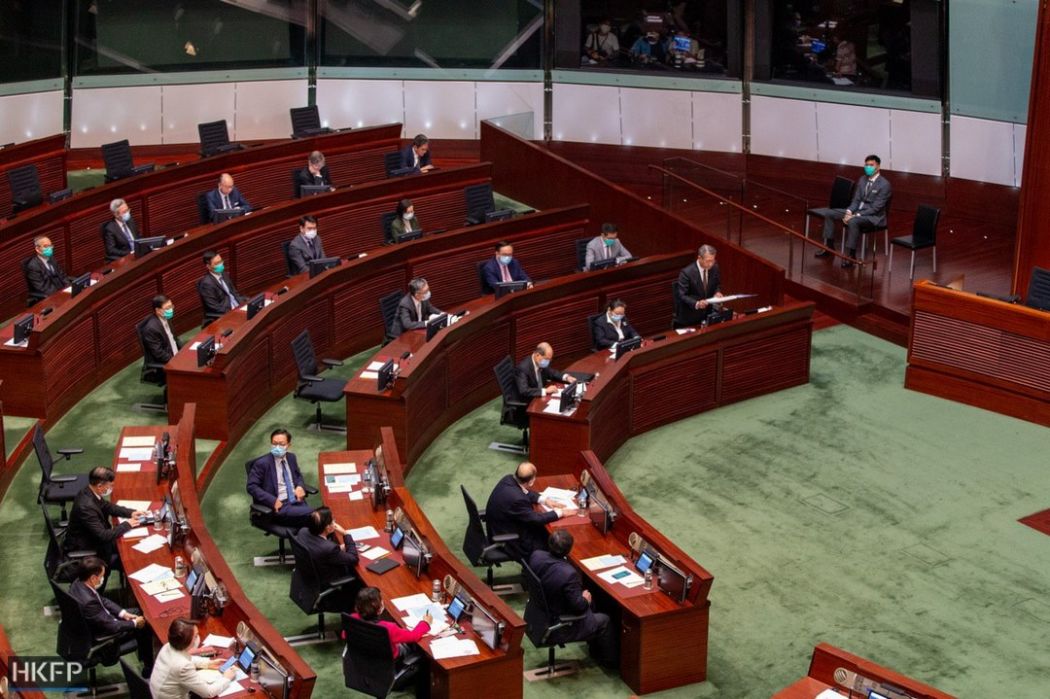Hong Kong’s financial secretary has announced a HK$10,000 cash handout for all permanent residents over the age of 18 in a bid to boost local consumption and ease economic woes in light of a fiscal deficit.
The relief measure involving an estimated expenditure of around HK$71 billion came amid negative economic growth since the second half of last year and the city’s first deficit in 15 years as the economy took a hit from the US-China trade war, large-scale protests and the coronavirus outbreak.
See also: Deficit set to hit a record HK$139 billion next year, says finance chief
But Paul Chan remained confident that fiscal reserves, previously estimated at HK$1.1 trillion, could weather the cost of the handout.
“I consider that, with ample fiscal reserves, the government has to increase public expenditure amid an economic downturn to stimulate the economy and ride of the difficult times with members of the public,” he said as he delivered his fourth budget blueprint at the legislature on Wednesday.

Chan also announced a salary tax cut of 100 per cent for the 2019-20 year up to a ceiling of HK$20,000 – set to benefit 1.95 million taxpayers and cost HK$18.8 billion.
Other relief measures for the public:
- Rates for residential properties for 2020-21 will be waived up to a ceiling of HK$1,500 per quarter – estimated to involve 2.93 million properties and cost HK$13.3 billion.
- Eligible social security recipients will benefit from an extra month of Comprehensive Social Security Assistance payments, Old Age Allowance, Old Age Living Allowance or Disability Allowance. A similar arrangement will be rolled out for the Work Incentive Transport Subsidy. It will cost around HK$4.23 billion.
- Lower-income tenants in government public housing will have a month of rent waived, with a total cost of HK$1.83 billion.
- Exam fees for students sitting the 2021 Hong Kong Diploma of Secondary Education Examination will be waived, at a cost of about HK$150 million.

Relief measures for business:
- Profits tax will be reduced by 100 per cent for the 2019-20 year to benefit 141,000 taxpayers at a cost of HK$2 billion.
- Business registration fees will be waived for 2020-21, benefitting 1.5 million business owners at a cost of HK$3 billion. Company registry fees for annual tax returns will be waived for two years to benefit 1.4 million firms at a cost of HK$212 million.
- A concessionary low-interest loan of up to HK$2 million will be provided to enterprises under the SME Financing Guarantee Scheme.
- Rates for non-domestic properties for 2020-21 will be waived up to a ceiling of HK$5,000 per quarter in the first two quarters and a ceiling of $1,500 per quarter in the remaining two quarters for each non-domestic property. 420,000 properties will benefit, at a cost of HK$3.2 billion.
- Non-domestic electricity accounts will enjoy a 75 per cent discount up to a ceiling of HK$5,000 for four months, at a cost of HK$2.9 billion. Likewise, water and sewage costs will be discounted by 75 per cent up to a cap of HK$20,000 and HK$12,500 respectively, costing HK$340 billion.
- Local recycling firms will see a rental subsidy for six months, costing HK$100 million.
- Tenants of government properties, government land and EcoPark will see rent discounts of 50 per cent, costing HK$573 million. Rent and fees for eligible operators of properties will be slashed by 50 per cent, costing HK$265 million.
- Hirers of civic centres under the Leisure and Cultural Services Department will enjoy discounts of 50 per cent for six months, costing HK$23 million.
“In preparing this budget, I put the focus on ‘supporting enterprises, safeguarding jobs, stimulating the economy and relieving people’s burden,’ Chan said.

“Hong Kong may have all sorts of shortcomings, but it is our home which allows diversity and freedom of development. Even if we have been disappointed, we can choose to feel hopeful for our future. Even if we are striving for different goals, we can work together to put aside our differences, make room for resolving conflicts, and drive Hong Kong forward,” he said in his concluding remarks.
